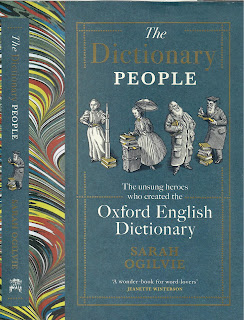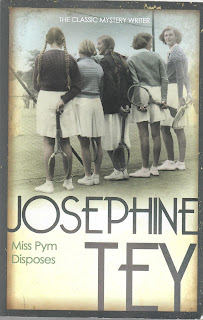Angela Saini describes
herself as a science journalist and this 2017 book is a fine piece of
investigative journalism in which she goes out of her way to track down and
interview academic researchers who over the past few decades have contributed
significantly to the study of sex differences. They include experimental and developmental
psychologists, evolutionary biologists, primate ethologists, anthropologists,
and a few who might be characterised as cognitive scientists. She has read
their books and research papers but it is the quotations harvested from skilful
interviews which give this book much of its interest and accessibility.
I do have a general
problem which I will make central to this review. Saini is interviewing
researchers most of whom seek to model their work on an image of physical
science in which painstaking laboratory or field work will yield decisive
results. It ain’t gonna work. Decisive outcomes are the privilege of those who
can control all the variables which might affect the results. Outside a few
parts of physical or natural science it is, unfortunately, never possible to
close the system; there will always be uncontrolled variables at work. Thus,
for example, a much-cited study of newborns by Baron-Cohen and Connellan
eventually comes to be criticised because the field researcher (Connellan) knew
the sex of at least some of the babies she was interacting with in a situation
where, ideally, she should have not known (page 88). It was a variable which had not
been controlled for. Search hard enough and you will soon find others and you
will find them in (almost?) every experiment.
Replication of someone
else’s experiments is a gold standard test of reliability in the hard sciences.
But in the fields with which Saini is concerned, replication is rarely possible
simply because the human world will have moved on and that is also an
omnipresent variable which cannot be controlled. You cannot replicate an
experiment done on 1973 Harvard undergraduates on 2023 Harvard undergraduates
because they are just going to be very different kinds of people and the cute
experiment of 1973 may just seem weird in 2023. The same problem of replication
confronts anthropological fieldwork among tribes comfortingly assumed to be
remote and untouched by history when, just like everyone else, they are not. If
they don’t have them this year, next year they will be carrying smartphones.
There are related
problems and most significantly the fact that the very categories in which
research is conducted and hypotheses formulated may be flawed by assumptions
(stereotypes acting as uncontrolled variables) which anticipate the results
even before the work has been done. Wilhelm Reich once nicely highlighted the
problem when he said that the question is not why hungry people steal food but
why they don’t. Scientists ask what they think are the right questions but what
they think is right may be infused by unexamined prejudice, as Saini repeatedly
demonstrates in the early chapters of her book. I mean, you can open almost any
“scientific” work written in English in the reign of Queen Victoria and
discover toe-curling prejudices which would make modern suburban table-talk
seem subtle and sophisticated.
In archaeology and
evolutionary biology Saini notes in a couple of paragraphs (pages 143 – 45) a
really interesting oversight which is actually a fundamental flaw. Everyone
knows that the archaeological record is very partial but we can only
hypothesise how partial. It’s possible to dig up flint tools, for example,
because they can go for millennia without degrading. But what about early
baskets, baby slings and digging sticks? They leave no trace. And suppose it
was women who invented and made those things and not the men who are always
supposed to have made the flint tools and who squat there in all those
cartoon-like drawings of prehistoric times? Without the baskets, the baby
slings and the digging sticks you have only half the story of early cultural
innovation.
There is one problem
specific to work on child development. Though Saini indicates the limitations
of the “blank slates” approach (page 66) it remains true that very little
research tries to look at babies and young children as agents in their
own right, with minds and wills of their own, making choices and decisions and
agitating for their voice to be heard. In my own work (most recently Culture
as Anarchy) I try to keep in mind the question, What is it like to be a
baby? and am tempted to answer that it is rather like being a teenager. You
will get my point if you consider the question, Why do babies hate
vegetables?
Finally, and the elephant
in the room, career researchers can and do falsify or big up results on a scale
which is only now being acknowledged. In my youth, Hans Eysenck was reckoned a
leading research psychologist, most famous for his Personality Inventory. Now
his work is deemed “unsafe”. It’s a consequence of his personality flaws but also of the scientific rat race and of publish or
perish and more besides. And it’s happening now at scale.
What is to be done? There
are very many millions of people who want to think about sex differences, talk
about them, read about them, research and write about them. The chatter isn’t
going to stop any time soon, at least not as long as I am alive. But to make
any progress much more attention has to be focussed on the core problems of
methodology. Routinised research papers which fit into a narrow, prescribed
paradigm are to all intents and purposes rarely worth the paper they are
printed on.






